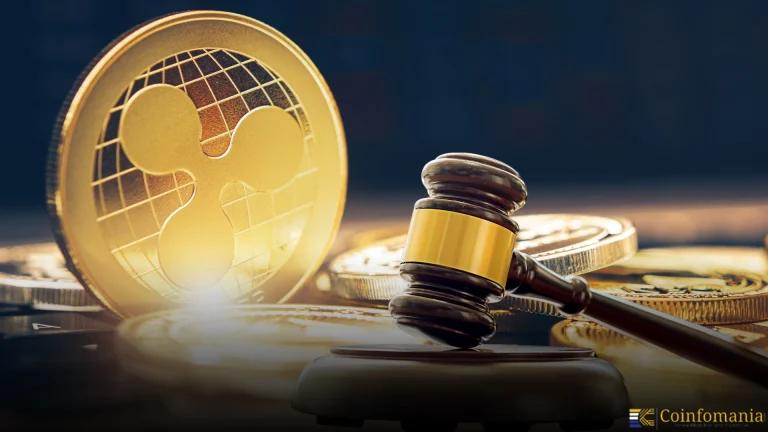Cryptocurrency Regulation in Latvia
Latvia’s fast-moving fintech sector and early alignment with the EU Markets in Crypto-Assets Regulation (MiCA) have made Riga a serious contender for crypto startups that want single-market access without the red tape found in larger hubs. A company can incorporate online, submit a pre-licensing file to Latvijas Banka, and—once fully authorised—“passport” its services across all […]

Latvia’s fast-moving fintech sector and early alignment with the EU Markets in Crypto-Assets Regulation (MiCA) have made Riga a serious contender for crypto startups that want single-market access without the red tape found in larger hubs. A company can incorporate online, submit a pre-licensing file to Latvijas Banka, and—once fully authorised—“passport” its services across all 27 EU member states. That efficiency comes with firm guard-rails: every would-be Crypto-Asset Service Provider (CASP) must keep paid-up share capital, undergo quarterly AML audits, and pay an annual supervision levy tied to gross revenue.
Historical Context
Latvia As of 2017, crypto regulation was explored in Latvia with the amendments to the Anti-Money-Laundering and Terrorism-Financing Law introducing the same customer-due-diligence requirements to the customers of the so-called virtual-currency service providers as those, that apply to banks and casinos. There was growing interest in the COVID-19 lockdowns but the regulatory breakthrough came on 30 June 2024 with the enactment of the Crypto-Asset Service Law, a national law, listing Latvijas Banka as the competent MiCA authority, authorisation fees, prudential ratios, and fines. The official licence window was about to open in January 2025; until then companies may carry out business under the AML registration but must have applied to get a full licence by 30 June 2025.
Regulatory Framework
Four institutions share oversight:
Latvijas Banka: Licenses and revokes CASP licences, undertakes prudential reviews and charges an annual supervision fee of 0.6 % (min. 3000 Euro).
State Revenue Service : Maintains the AML register, checks KYC files and may freeze the accounts that are suspected of sanctions violations.
Financial Intelligence Unit: Examines suspicious-transaction reports, particularly those that are associated with huge cash-outs of exchanges.
Consumer Rights Protection Centre: It checks punitiveness in advertising especially with regard to high-yield lending and staking products.
CASPs must:
- Hold a registered office and “effective management” in the EU.
- Appoint two fit-and-proper board members resident in Latvia.
- Maintain internal control policies that map to both MiCA and the EU “travel rule” for transfers above €1000.
Latvia Crypto Policies
Legal tender. Crypto-assets are not legal tender, but private parties may settle contracts in bitcoin, ether, or stable-coins—provided the underlying obligations are ultimately reported in euros for tax.
Licensing perimeter – Ten activities trigger a licence: custody, trading-platform operation, fiat-to-crypto exchange, crypto-to-crypto exchange, order execution, placement, order transmission, advice, portfolio management, and transfer services. Unlicensed solicitation carries fines up to €5 million or 10 % of annual turnover.
Capital requirements. The draft implementing rules peg initial capital to service risk—€50 000 for advice, €125 000 for exchanges, and €150 000 for trading-platform operators. Capital must sit in an EU credit institution at all times.
Marketing. Any public offer of crypto-assets (including NFT drops aimed at retail) requires a MiCA white paper filed with Latvijas Banka ten working days in advance. Telegram or X promotions that target Latvian users without a white paper constitute a breach.
Tax. Capital gains on crypto disposals are taxed as “income from capital increases” at 20 %. CASPs pay standard corporate tax (20 % on distributed profits) plus the 0.6 % supervision levy
Crypto Innovation Approach
Regulators are more inclined to a guided sandbox. Candidates are able to reserve free pre-licensing consultations in which the central-bank engineers examine custody set-ups, smart-contract audits, and chain-analytics tools. The most popular use-cases to date are euro-backed stable-coin issuers that seek to connect to SEPA, Baltic game studios that issue NFT in-game assets, and neobanks that insert on-ramp/off-ramp rails into multi-currency wallets.
Challenges and Issues of Note
- Cost of compliance. Small start-ups must fund capital, external audits, and the annual levy long before revenue arrives.
- Talent shortages. Demand for resident AML officers has outstripped supply, pushing salaries above those in traditional banking.
- Legacy de-risking. Several commercial banks still refuse accounts for new CASPs, pushing them toward higher-fee e-money institutions.
- Rapid rule changes. Firms must synchronise MiCA, the EU travel rule, and forthcoming Anti-Money-Laundering Authority standards within 18 months.
Important Regulatory Trends and Prospects
- MiCA fast-track. Latvia intends to finish all secondary rules by Q4 2025, giving early licensees first-mover EU passporting rights.
- Supervision tech stack. Latvijas Banka is piloting a node that will ingest CASP-submitted blockchain analytics, aiming for near-real-time risk scoring.
- Staking clarity. Draft guidance will treat staking-as-a-service as portfolio management, requiring enhanced conflict-of-interest controls.
- Retail advertising code. Consumer watchdogs are drafting a crypto-promotions code modelled on the UK’s “fin-proms” rules, likely to land in 2026.
Conclusion
Latvia offers a compelling blend of digital-first administration and stringent oversight. For founders willing to invest in governance, a Latvijas Banka license opens the entire EU market; for those looking to “fly under the radar,” the new framework leaves little hiding space. As MiCA beds in, Riga is poised to become a northern European launchpad for compliant, pan-EU crypto businesses.
FAQs
1. Is cryptocurrency legal tender in Latvia?
No. Only the euro has legal-tender status, although private crypto-settlement is permitted by contract.
2. What are the timelines of the current operators to have a full MiCA licence?
Companies operating prior to 30 December 2024 can run on AML registration until 30 June 2025, on the condition that they submit a licence application by this date.
3. What are the authorisation charges?
Application fee: 2,500 euros; after the licence is issued, 5,000 euros and 0.6 % of gross income of crypto-services annually.
4. What is the time frame of licensing?
The Latvijas Banka aims at three to nine months duration, with a pre-application period, where consultations are free.
5. Are NFTs regulated differently from fungible tokens?
Single-edition NFTs fall outside MiCA’s core rules, but fractional or “bundle” NFTs that act like securities will trigger the full regime.
6. Can offshore exchanges serve Latvian users on a reverse-solicitation basis?
Yes, if the Latvian user approaches the platform without prior marketing. Any active solicitation—ads, Latvian-language social feeds, or local events—brings the platform inside Latvian jurisdiction.
7. What capital is required for an exchange licence?
Current draft rules set the floor at €125 000, held in an EU bank.
8. How are crypto gains taxed for individuals?
As capital gains at 20 % once annual disposals exceed €1 000.
9. Does Latvia plan a CBDC?
Latvia participates in the European Central Bank’s digital-euro project but has no separate national CBDC agenda.
10. Where can I verify a firm’s licence?
Latvijas Banka publishes a live register of authorised CASPs on its website.
Follow us on Google News
Get the latest crypto insights and updates.
Related Posts

Ripple Highlights Custody as Key to $18.9T Tokenized Assets by 2033
Shweta Chakrawarty
Author

Hong Kong SFC Issues New Custody Rules for Crypto Platforms
Shweta Chakrawarty
Author

South Korea and Vietnam eye $150B trade despite Trump tariff
Shweta Chakrawarty
Author